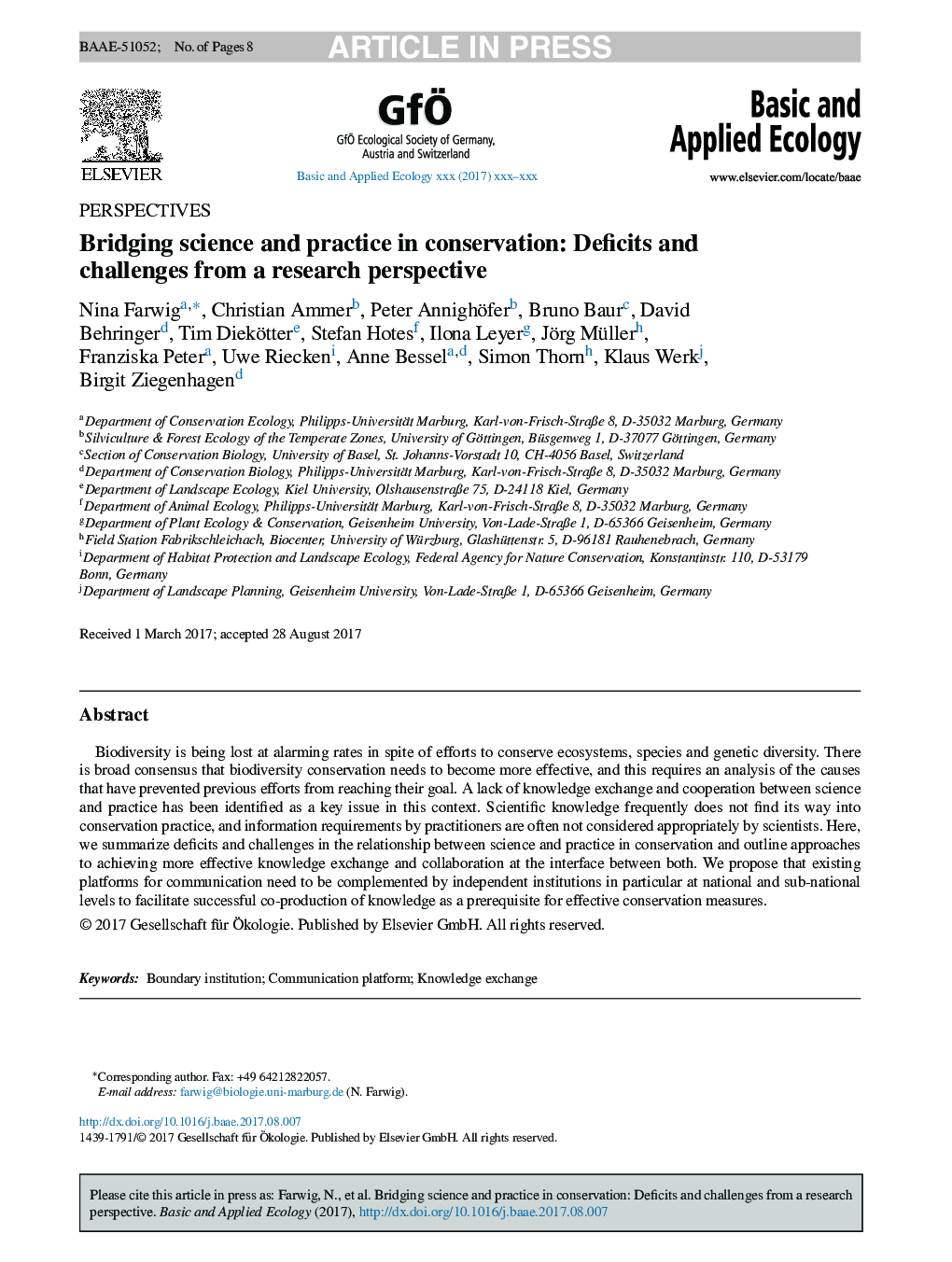| Article ID | Journal | Published Year | Pages | File Type |
|---|---|---|---|---|
| 8847060 | Basic and Applied Ecology | 2017 | 8 Pages |
Abstract
Biodiversity is being lost at alarming rates in spite of efforts to conserve ecosystems, species and genetic diversity. There is broad consensus that biodiversity conservation needs to become more effective, and this requires an analysis of the causes that have prevented previous efforts from reaching their goal. A lack of knowledge exchange and cooperation between science and practice has been identified as a key issue in this context. Scientific knowledge frequently does not find its way into conservation practice, and information requirements by practitioners are often not considered appropriately by scientists. Here, we summarize deficits and challenges in the relationship between science and practice in conservation and outline approaches to achieving more effective knowledge exchange and collaboration at the interface between both. We propose that existing platforms for communication need to be complemented by independent institutions in particular at national and sub-national levels to facilitate successful co-production of knowledge as a prerequisite for effective conservation measures.
Related Topics
Life Sciences
Agricultural and Biological Sciences
Animal Science and Zoology
Authors
Nina Farwig, Christian Ammer, Peter Annighöfer, Bruno Baur, David Behringer, Tim Diekötter, Stefan Hotes, Ilona Leyer, Jörg Müller, Franziska Peter, Uwe Riecken, Anne Bessel, Simon Thorn, Klaus Werk, Birgit Ziegenhagen,
